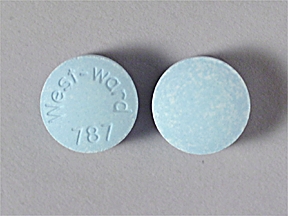Medications can be used to either prevent a migraine attack from happening or treat it once it occurs. You may be able to get relief with OTC medication. But if OTC medications aren’t effective, your doctor may decide to prescribe other medications.
The severity of your migraine and any other health conditions you have will determine which treatment is right for you.
Acute medications — taken as soon as you suspect a migraine attack is coming — include:
- NSAIDs: These medications, like ibuprofen or aspirin, are typically used in mild-to-moderate attacks that don’t include nausea or vomiting.
- Triptans: These medications, like sumatriptan, eletriptan, and rizatriptan, are typically the first line of defense for individuals who have nerve pain as a symptom of their migraine attacks.
- Antiemetics: These medications, like metoclopramide, chlorpromazine, and prochlorperazine, are typically used with NSAIDs to help decrease nausea.
- Ergot alkaloids: These medications, like Migranal and Ergomar, aren’t prescribed that often and are usually reserved for individuals who don’t respond to triptans or analgesics.
Preventative medications — prescribed to people whose migraine attacks can be debilitating or happen more than four times a month — are taken once a day, or every 3 months via injection. These medications include:
- Antihypertensives: These drugs are prescribed for high blood pressure and can also help with migraine attacks. Beta-blockers and angiotensin receptor blockers (candesartan) are some examples of antihypertensive drugs used for migraine prevention.
- Anticonvulsants: Certain anti-seizure medications may also be able to prevent migraine attacks.
- Antidepressants: Some antidepressants, like amitriptyline and venlafaxine, may also be able to prevent migraine attacks.
- Botox: Botox injections are administered to the head and neck muscles every 3 months.
- Calcitonin gene-related peptide treatments: These treatments are administered either via injection or through an IV and work to prevent a migraine attack from developing.
What is Fioricet and How Fioricet treat Migraine
Fioricet is supplied in hard-gelatin capsule form for oral administration.
Each capsule contains the following active ingredients:
Butalbital, USP……………………50 mg
Acetaminophen, USP…………….300 mg
Caffeine, USP……………………..40 mg
Inactive Ingredients: sodium lauryl sulfate, talc, microcrystalline cellulose, stearic acid, FD&C red # 40, titanium dioxide, FD&C blue # 1,FD&C yellow # 6, gelatin.
Butalbital (5-allyl-5-isobutylbarbituric acid), is a short to intermediate-acting barbiturate. It has the following structural formula:

Acetaminophen (4´-hydroxyacetanilide), is a non-opiate, non-salicylate analgesic and antipyretic. It has the following structural formula:

Caffeine (1,3,7-trimethylxanthine), is a central nervous system stimulant. It has the following structural formula:

Fioricet is very effective for Migraine
| FIORICET butalbital, acetaminophen, and caffeine capsule | ||||||||||||||||||
|
||||||||||||||||||
|
||||||||||||||||||
|
||||||||||||||||||
|
||||||||||||||||||
|
||||||||||||||||||
